Is Gambling Profitable?
There are many gamblers in the world, 85% of American adults have gambled at least once in their lifetime [s], the global gambling industry was estimated to be 335 billion $ in 2009 [s]. Online gambling is gaining momentum, and with the advent of crypto-currencies, it is taking it to a new level. Still land based gambling is the predominant one, but given how much bitcoin gamblers are out there, this may change very soon.
To answer the question in the title, yes of course it is, gambling is profitable, but only for the casinos. Every gambler gambles in expectation of earning money, and then they end up losing money. Gambling was never designed to make you money, it is just an entertainment service, where the servicer (the casino) makes money for providing you this service. Even the casinos warn people to only gamble for fun, and not for profit, but nobody listens.
Whenever we are investing, we expect more money to get back than we invested. In gambling the opposite happens.
The fundamental difference between gambling and investing is that:
In investing the potential expected value is positive, while in gambling it is negative or zero. The expected value is the potential return/profit of the investment, and a negative expected value is identifiable as a house edge.
https://en.wikipedia.org/wiki/Expected_value
If we flip a coin, the probability of landing on heads and tails is 50-50%, which means that we are neither at advantage or at disadvantage when betting on either. Our expected value here is 0, and we will end up with 0 profit over the long term (which could be positive profit, or negative in the short term due to Variance)
In a casino, you will see exciting combinations between the payout rate and the probability to hide the fact that you will still lose:
- You will see a
50%probability withx1.96payout rate, is a2%house edge, which means that the house will drain2%of your betsize over the longterm - You will see a
97%probability withx1.01payout rate, is a2%house edge, which means that the house will drain2%of your betsize over the longterm (don't let the high probability to fool you) - You will see a
1%probability withx98payout rate, is a2%house edge, which means that the house will drain2%of your betsize over the longterm (don't let the high payout rate to fool you)
Casinos will surely play on the fact that you didn't calculated your expected value, and they will profit from it, while you lose. You can calculate the EV with this simple formula:
EV = (Payout Rate - 1 ) * Probability_of_Win - ( 100 - Probability_of_Win)
If it's negative, then don't bet, unless you want to lose on the longterm. Hint: It will always be negative.
So we can see that only the house wins longterm, and the gamblers will eventually end up broke, as the math is solid, and the house edge will drain your account down to 0 eventually.
Few people might win short term, but if they don't stop, in the long term, their account goes to 0 as well.
But what about Gambling Strategies ?
They are scams. Many people are selling gambling guides on the internet. If they would know how to gamble profitably, they would gamble themselves, and not try to scam people with their magical strategies.
But what about Martingale Betting System ?
It only works if you have infinite money supply, at which point you don't need to gamble. In the martingale system, the risk grows exponentially, while the profit grows linearly. You don't need to be a rocket scientist to figure out what this means. It means that your account will be wiped out sooner or later if you continue the double down.
But what about luck?
Again, if you are lucky you might win the lottery. If you stop, then you keep the money. If you continue buying more lottery tickets with the lottery prize, chances are that fortune won't smile at you again, and you will lose all your money. If gambling would be so profitable, then everyone would be a gambler, and nobody would be a farmer, an auto-mechanic or a chef. It's only for entertainment, since nobody can be lucky consistently.
But what about Poker ?
There are some games that require skill to win, and we don't consider them as gambling. I am not a poker player, but from what I heard, there is more skill involved there than luck, so your competitiveness and skill will probably determine your profit there. There are other games too where skill is the primary requirement, but when we talk about gambling we refer to the random games: dice, roulette, baccarat, slots, etc.
So this is what gambling is. It is a form of entertainment, where only the service provider, the casino makes money, while the players sometimes win, more times lose.
Don't get me wrong, I have nothing against gamblers, I gamble too some times, but you have to recognize, that you won't make consistent profit from gambling.
If you want to make consistent profits, your will have to find another profession. You can always follow me, I definitely know how to make consistent profits. You can always learn a few tricks from me, after all my username is @profitgenerator :)
Like here:
https://steemit.com/trading/@profitgenerator/huge-profit-with-monero-92-85-profit-in-5-days
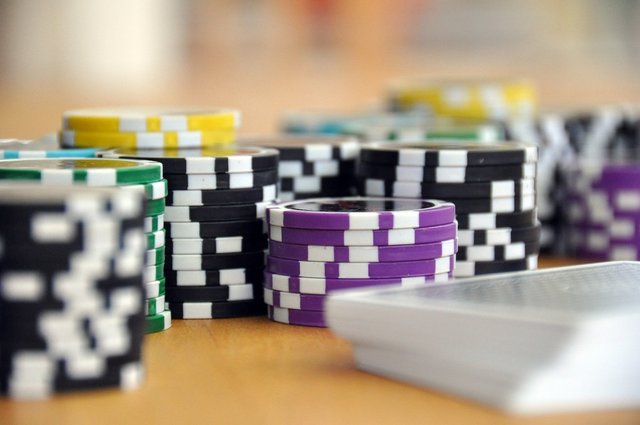
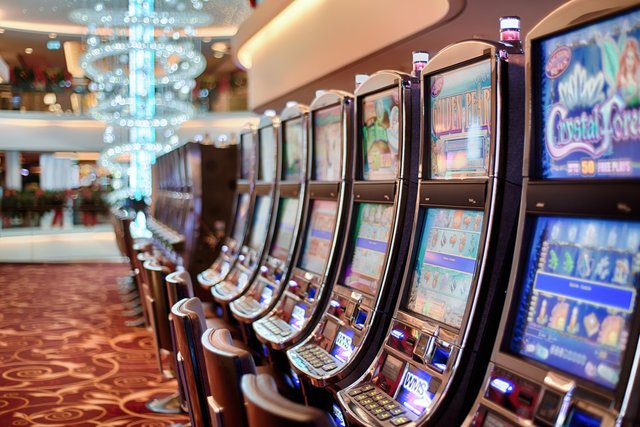
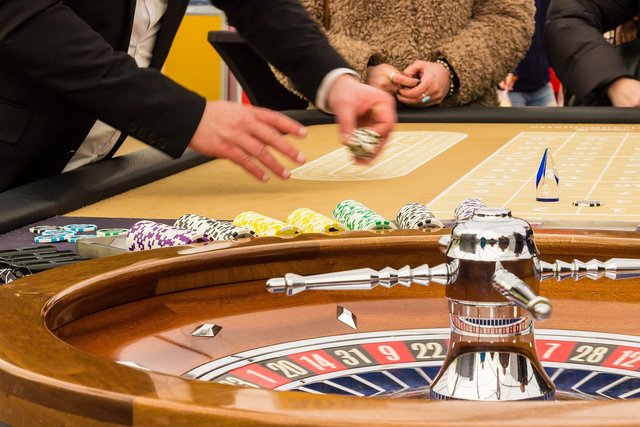
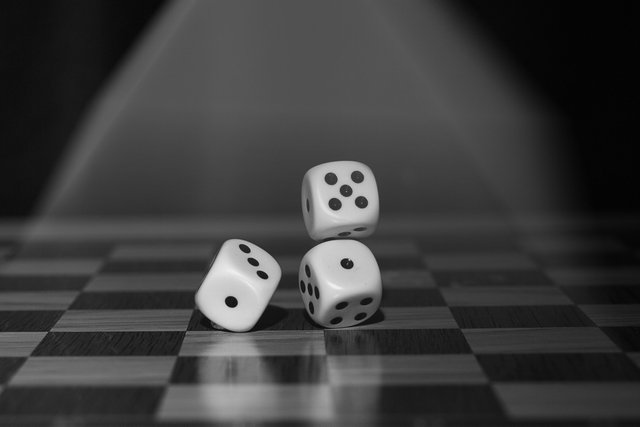
As my father who was a bookmaker for 20 years would say "You can make a small fortune gambling...you just have to start with a big fortune"
Haha similar to this saying:
The only way to become a millionaire from gambling is to start as a billionaire!
Thanks for sharing!
I like a game of online bingo, I won £150 on Saturday night but won't probably win again for a few months
You've had nice luck there, but don't expect that to be consistent.
I know that, That's why I said I won't win again for months they always get there money back and more
Well I wish you good luck still, if you are having fun, then it is good. Just don't gamble more than you can afford to lose.
I don't drink or smoke disabled and housebound, is my treat on a Friday, Saturday and Sunday evening £10 a night then I log off
Will leave this here as reference:
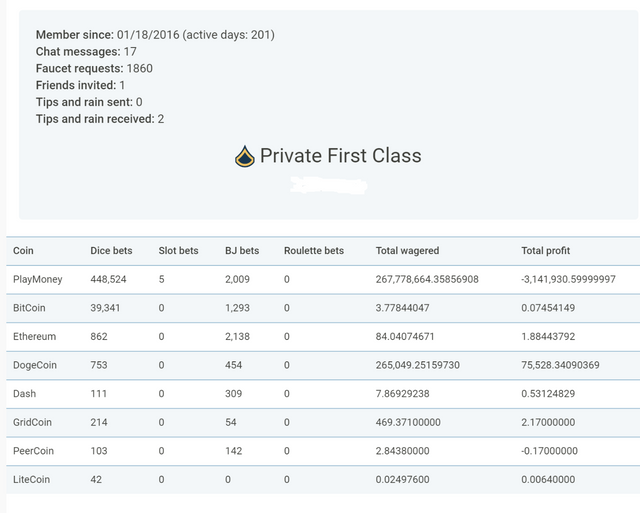
Note that PlayMoney are free tokens from the casino and you get them from a faucet.
I also totally agree with your article and I have already upvote it.
This is an update of my stats after almost three weeks of gambling:
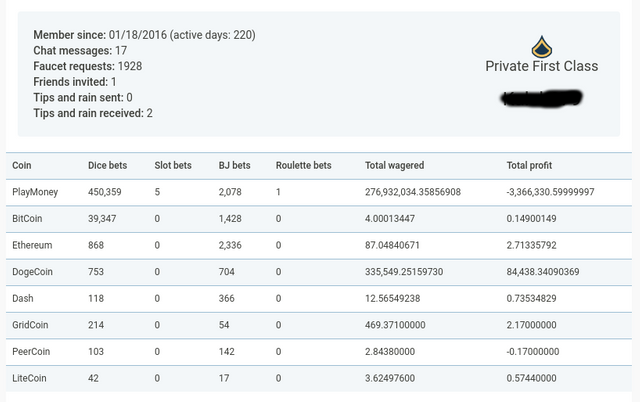
Only PlayMoney going south :)
Everything else is ether UP or stable.
How do I do it? It is called experience :)
For a second I've thought the Playmoney was bitcoins, that would have been insane.
But yes, keep it small, if you enjoy it, no problem, just don't become addicted to it.
I'm already addicted since I gamble for fun for over 2 decades. I just can't remember loosing a large sum of money. I always play with money I can afford to lose:). I 've also made a few thousand DOGE betting on casino side of that site.
But losing small sums of money over 2 decades can also become a fortune lost.
If you haven't kept records how much you've gambled, then you have no way of knowing how much you've lost.
Yes but you will still face the mathematical inevitability. In the long term you will guaranteed lose, it is not a question if, but a question of when.
Every single bet has a negative expectancy, and the more you play the higher is the total probability that your profit will go to negative.
https://en.wikipedia.org/wiki/Law_of_total_probability
https://en.wikipedia.org/wiki/Law_of_large_numbers
Let's say that I don't always lose and that I'm not a frequent visitor of land based casinos. The above record shows that I don't lose frequently. I'm up at every single coin except PlayMoney which is free for experimenting and peercoin which I have gambled with what the faucet of the casino has provided.
One of the first jobs I had was tech support for online casino. In my free time I've read a lot about about that field, and all I can say is that your analysis is spot on.
Even strategies like optimal strategy & card counting that equalize the chances a bit are frowned upon by the house.
Of course because the house edge is not just the profit of the house but it's insurance. The lower the house edge, the higher the tail risk.
Casinos have to be well capitalized to defend against high variance risk, by deploying bet size caps and adjusting the house edge accordingly.
If a billionaire would come to a roulette table playing martingale, chances are, that he would walk out of there with profit. That is why roulette has maximum 10,000$ bet limit, and even that is for VIP only.
So by banning card counting they are just reducing their risk, as a 0% house is very dangerous for them, because it is unpredictable, and the house might even go bankrupt if big whales exploit that, so they can only function with negative edge and betsize limits.
I have written a lot on this subject. Two important points, in regard to expected value. A poker player cannot show that they have an expected value because the winrates are opaque in regard to tracking sites. An investor also cannot show this, and so there is no scientific bases to show that poker or investing is +ev. I have a disjoint blog that goes into an inquiry on the subject here: https://thewealthofchips.wordpress.com/
check out some of my articles on steem because they are related to yours and will be going forward.
The basic idea is that after realizing poker cannot be shown to be +ev with scientific basis (ie empirical data), there is the realization that you COULD set up the industry so this is possible. The solution for doing so is a generalization and then specification of John Nash's Ideal Money which is a proposal for a standard unit of value measurement which would allow investing to have the same quality.
Well EV = PROFIT / NR. TRADES OR BETS
If 1 BTC trade has 0.1 EV for example that means that over 10 trades I should expect a 1 BTC profit, on average.
I know little of poker, but yes we could talk about EV in investments, that is more exciting. I'll check out your blog.
In my opinion it relates to the efficient market hypothesis. Inefficient markets always have +EV, and as more and more traders compete to gain money, the profit potential shrinks due to competitive pressure, and the EV becomes 0 / trader, and the market becomes efficient.
https://en.wikipedia.org/wiki/Efficient-market_hypothesis
This is why trading FOREX markets are pretty much gambling, when you compete against high frequency trading bots, you have no chance to efficiently predict the market.
What I mean to say is that there is no basis to say, I'm going invest in X and my expected return is Y. You would need a god to be able to truly predict what ones winrate will should be. Poker players, over time, suggest that they make x dollars over some period, but past results don't necessarily predict the future in this way ;p Always you can ask them what a proper sample size would be (ie law of large numbers), to have statistical confidence. Nearly no poker player understands this questions, and there is no reasonable set of empirical results for a player to have strong confidence (I myself have over 100k games and its not enough).
it's true if the markets were efficient then the EV would be effectively gone, but I more mean to say, if one cannot show a play or strategy is profitable then it can't be considered +ev. There is only guessing going on by both winners and losers.
My articles are prob too disjoint unless you really search, but many players and knowledgeable people seem to find SOME value in them :)
Yes that is true, because there is not strategy that is profitable. There is no set of fixed rules that will result in fixed profits. The market is flexible, and somewhat unpredictable. The only way to gain profit from a market is to analyze macroeconomic events that will affect it.
The EV will be uncertain, but the risk is easier to calculate than the reward, so there is material we can work with. In quantitative finance, there are many topics about this.
Also in betting it's pretty easy to estimate the winrate, that is what the sportsbetting bookies are doing, and they are good at it, otherwise they would be bankrupt.
Nice post! Keep it up!
Thank you, I try to my best to write good articles!